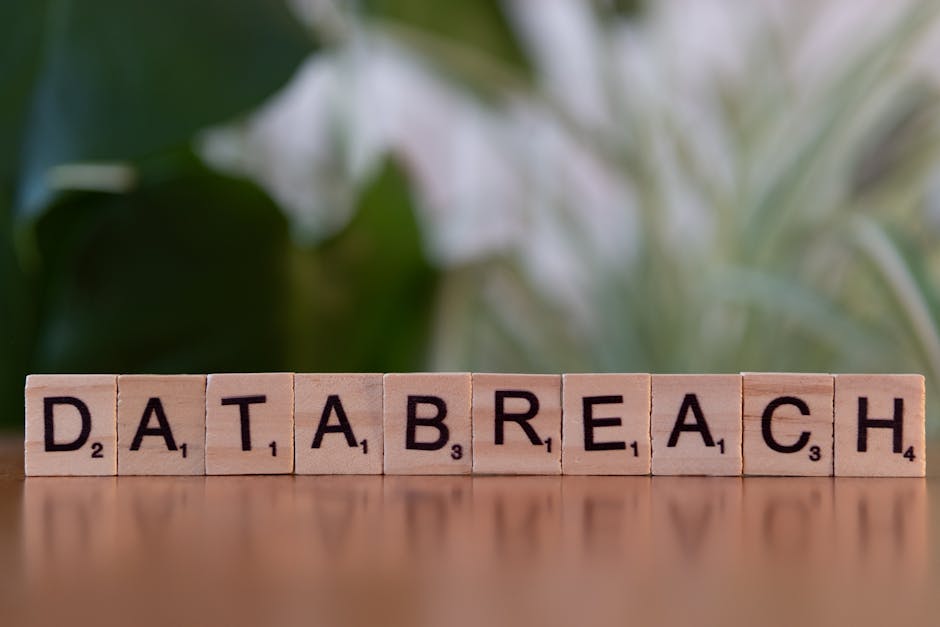What to Do After a Security Breach
Imagine waking up to find that someone has broken into your home. that’s how it feels when a security breach happens. Your personal information, company data, or finances may be at risk. The shock can be overwhelming. But don’t panic! Heres what you need to do immediately after a security breach.
What Should You Do First?

As soon as you discover a security breach, take a deep breath. Your first step is to assess the situation. Determine what data has been compromised. Is it your personal data, customer data, or financial information? Knowing what’s at stake helps you make informed decisions.
For example, if it’s your email account that’s been hacked, you need to act quickly to protect your sensitive information.
Is Your Password Safe?

Change your passwords immediately. Use strong, unique passwords for each account. Avoid simple words or easily guessed phrases. A good password should have at least 12 characters, mixing letters, numbers, and symbols.
- Use a mix of uppercase and lowercase letters.
- Include numbers and special characters.
- Avoid using birthdays or common names.
Consider using a password manager to keep your passwords secure. This tool can help generate and store complex passwords. it’s like having a safe for your digital keys!
Have You Notified the Right People?

Next, notify any affected parties. If you run a business, inform your customers or clients. Transparency builds trust, even in tough situations. Share what happened, the data at risk, and how you plan to address it.
For individuals, reach out to your bank or credit card company. They can help monitor your accounts for unusual activity. This step is crucial to prevent further damage.
What About Monitoring Your Accounts?

Keep a close eye on your financial accounts. Look for unauthorized transactions or any suspicious activity. it’s wise to set up alerts for your bank accounts and credit cards. This way, youll be notified immediately if something seems off.
Also, consider checking your credit report. you’re entitled to one free report a year from each credit bureau. Regularly review it for unfamiliar accounts or inquiries.
Should You Consider Identity Theft Protection?
After a breach, think about identity theft protection services. These services can monitor your personal information and alert you if someone tries to use it fraudulently. They can also assist you if your identity is stolen.
However, always read the fine print. Not all services offer the same level of protection. Choose a reputable provider that fits your needs.
How Can You Strengthen Your Security?
Now that youve managed the immediate aftermath, it’s time to enhance your security. Here are some tips:
- Enable two-factor authentication (2FA) on your accounts.
- Regularly update your software and apps to patch vulnerabilities.
- Educate yourself about phishing scams and how to avoid them.
Improving your security posture can help prevent future breaches. Think of it as installing a better lock on your door after a break-in.
What Should You Do If Personal Data Is Exposed?
If sensitive personal data is exposed, you may need to take further steps. This includes notifying credit agencies and possibly freezing your credit. A credit freeze prevents lenders from accessing your credit report until you lift the freeze.
To freeze your credit, contact each of the three major credit bureaus:
- Equifax
- Experian
- TransUnion
A credit freeze is free and can provide peace of mind. it’s a way to safeguard your identity while you recover from the breach.
Is There Legal Action to Consider?
In some cases, you may have legal grounds to pursue action against the organization that suffered the breach. If your data was mishandled or lacked proper security, you might consult with a lawyer.
Research the laws in your area regarding data breaches. Some states have specific regulations that require companies to take immediate action and inform affected individuals.
How Do You Keep Up with Future Security Risks?
Staying informed about security risks is vital. Subscribe to cybersecurity newsletters or follow trusted blogs. Knowledge is a powerful tool in protecting yourself.
Additionally, consider attending workshops or webinars on cybersecurity. Many organizations offer free resources to help you understand and mitigate risks.
What Are Common Misconceptions About Security Breaches?
Many people believe that security breaches only happen to large companies. This is false! Small and medium-sized businesses are often targets because they may lack robust security measures.
Another misconception is that if you haven’t noticed anything wrong, you’re safe. Not true! Some breaches go undetected for months. Regular monitoring is key.
What Should You Do Moving Forward?
After handling the immediate effects of a security breach, focus on the future. Reflect on what you can learn from this experience. Strengthening your security measures can help build resilience.
Here are some actionable takeaways:
- Implement stronger passwords and use a password manager.
- Educate yourself and your team on security best practices.
- Regularly review and update your security protocols.
Remember, a security breach can happen to anyone. The important thing is how you respond and learn from it.
Final Thoughts
Security breaches are challenging, but they can also be a wake-up call. By taking immediate action, improving your security, and staying informed, you can protect yourself better in the future.
Stay proactive and vigilant. If you’re interested in learning more about cybersecurity, check out articles from experts like those at the Cybersecurity & Infrastructure Security Agency ([CISA](https://www.cisa.gov/)).
Remember, knowledge is your best defense against cyber threats.



